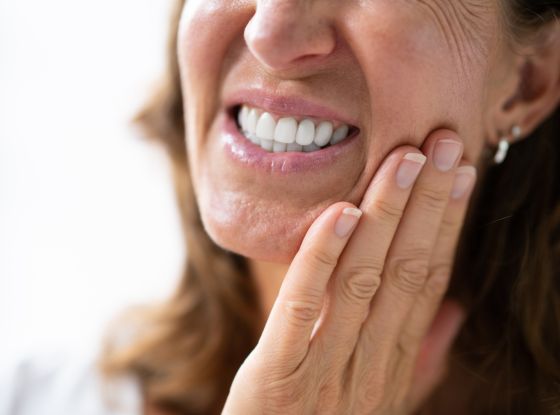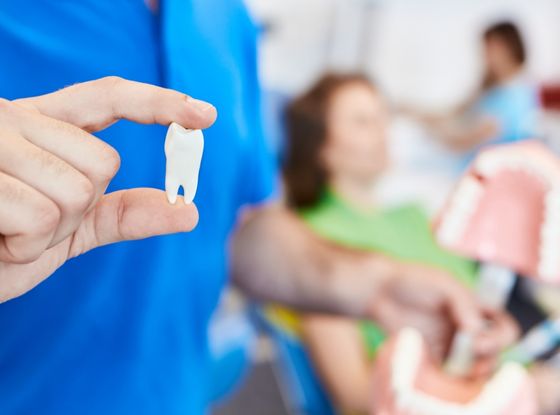Restorative Dentistry Options to Fix a Broken Tooth

Repairing Your Smile: Restorative Solutions for a Broken Tooth in Parker, CO
A broken tooth can be more than just a cosmetic concern; it can affect your oral health and overall well-being. Whether it’s a minor chip or a significant fracture, restorative dentistry offers various solutions to restore your tooth’s functionality and appearance. At Green Dental Care, recognized as the best dentist in Parker, CO, we are committed to providing effective and tailored restorative options. Here’s a look at some of the most common restorative dentistry options available for fixing a broken tooth.
Understanding the Causes of Tooth Damage
Before exploring restorative options, it’s essential to understand the common causes of broken teeth:
- Trauma or Injury: Accidents during sports, falls, or physical altercations can result in broken teeth.
- Cavities: Untreated dental decay can weaken the tooth structure, making it more susceptible to fractures.
- Biting Hard Foods: Chewing on hard objects like ice, hard candy, or bones can lead to cracks or breaks.
- Bruxism: Grinding or clenching your teeth, often due to stress, can cause significant wear and fractures over time.
Recognizing the cause of the damage can help prevent future issues and determine the best restorative treatment.
Restorative Dentistry Options
At Green Dental Care, we offer several restorative dentistry options to fix a broken tooth. The choice of treatment depends on the extent of the damage and your specific needs.
1. Dental Bonding
Dental bonding is a quick and cost-effective solution for minor chips or cracks. During this procedure, we apply a tooth-colored resin to the affected area. Here’s how it works:
- Preparation: The dentist will clean the tooth and apply a mild acid to create a rough surface for better adhesion.
- Application: We will apply the resin, sculpt it to match the natural shape of your tooth, and then harden it with a special light.
- Polishing: Finally, we will polish the bonded area to ensure it blends seamlessly with your surrounding teeth.
Dental bonding typically takes one visit and can restore the tooth’s appearance and functionality effectively.
2. Dental Crowns
For more significant damage or extensive fractures, a dental crown may be the best option. Crowns are custom-made caps that cover the entire tooth. The process generally involves:
- Evaluation: We will assess the extent of the damage and discuss your options.
- Preparation: We will shape the damaged tooth to accommodate the crown. We may need to remove some of the existing tooth structure.
- Impressions: We will take impressions of your teeth to create a custom crown that fits perfectly.
- Temporary Crown: We may place a temporary crown while your permanent crown is being made.
- Crown Placement: Once your custom crown is ready, we will securely attach it to the prepared tooth.
Dental crowns are durable and can last many years with proper care, making them an excellent choice for restoring broken teeth.
3. Veneers
If your broken tooth has cosmetic concerns, such as discoloration or misalignment, dental veneers may be an ideal option. We create veneers from thin shells of porcelain or composite resin to cover the front surface of your teeth. The process typically involves:
- Consultation: We will discuss your goals and determine if veneers are suitable for your situation.
- Preparation: We may remove a small amount of enamel from the front of the tooth to ensure a proper fit.
- Impressions: We will take impressions of your teeth to create custom veneers.
- Bonding: Once the veneers are ready, we will bond them to your teeth using a strong adhesive.
Veneers can enhance the appearance of your smile while providing added protection to damaged teeth.
4. Root Canal Therapy
In cases where a broken tooth has caused damage to the inner pulp, a root canal may be necessary. This treatment addresses infection and pain and restores the tooth’s health. The process involves:
- Diagnosis: We will perform X-rays to evaluate the extent of the damage and infection.
- Anesthesia: We will administer local anesthesia to ensure your comfort during the procedure.
- Removal of Pulp: We will remove the infected or damaged pulp and clean and disinfect the tooth.
- Filling: We will fill the empty pulp chamber with a biocompatible material and seal it.
- Crown Placement: We often place a crown on the tooth after a root canal to provide protection and restore functionality.
Root canal therapy can save a damaged tooth and prevent further complications.
5. Tooth Extraction
In cases where the tooth is beyond repair, extraction may be necessary. This is typically a last resort when other restorative options cannot salvage the tooth. After extraction, we will discuss tooth replacement options, such as dental implants or bridges, to restore your smile.
Choosing the Right Treatment
Selecting the best restorative option for a broken tooth depends on various factors, including the severity of the damage, your oral health, and personal preferences. At Green Dental Care, we take the time to evaluate your situation and discuss all available options, ensuring you feel comfortable and informed about your decision.
Why Choose Green Dental Care?
As the best dentist in Parker, CO, Green Dental Care commits to providing exceptional restorative dentistry. Here’s why you should choose us:
- Experienced Team: Our skilled dentists have extensive experience in restorative procedures and stay updated on the latest techniques.
- Patient-Centered Care: We prioritize your comfort and satisfaction, providing personalized treatment plans tailored to your needs.
- Advanced Technology: We use state-of-the-art technology to ensure precise diagnoses and effective treatments.
Contact Us
A broken tooth doesn’t have to compromise your smile or oral health. With various restorative dentistry options available at Green Dental Care, you can restore the functionality and appearance of your teeth effectively. If you’re dealing with a broken tooth, don’t hesitate to contact us for a consultation. As the best dentist in Parker, CO, we dedicate ourselves to helping you achieve a healthy, beautiful smile!





